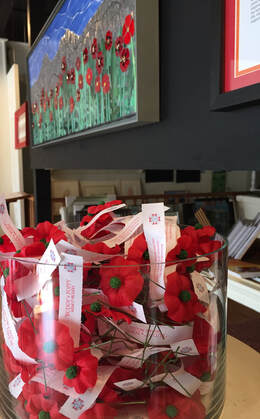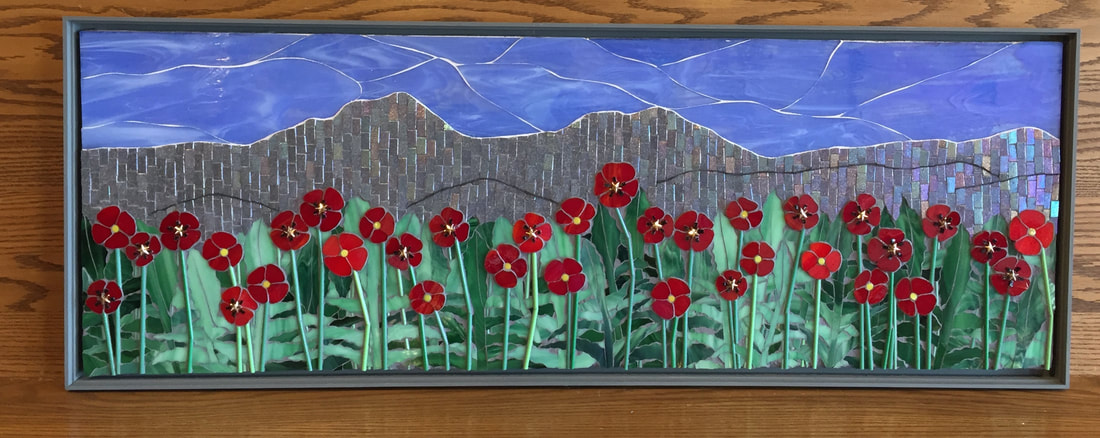
On June 6, 1944, 35 men from Bedford came to Omaha beach to take Europe back from Nazi Germany. Nineteen of them did not survive the day. Those 19 men were part of 842 men who died on Omaha Beach who were part of the approximately 10,000 soldiers that died on D-day. The 77-day long battle for Normandy was brutal with a casualty rate of 6,675 people a day. By the end of WWII approximately 4,000 Bedford county citizens, out of a population of 40,000, were in uniform. Somewhere between 70 – 85 million people died in WWII, approximately 3% of the world’s population, many from war related disease and famine.
This piece honors the story of the men from Bedford specifically, but also pays tribute to those who have fought and sacrificed on foreign soil and at home. Hopefully, it also speaks to what can come from sacrifice - what can grow in the fields of despair or blossom into better being.
In Flanders Field by John McCrae
In Flanders fields the poppies blow
Between the crosses, row on row,
That mark our place; and in the sky
The larks, still bravely singing, fly
Scarce heard amid the guns below.
We are the Dead. Short days ago
We lived, felt dawn, saw sunset glow,
Loved and were loved, and now we lie
In Flanders fields.
Take up our quarrel with the foe:
To you from failing hands we throw
The torch; be yours to hold it high.
If ye break faith with us who die
We shall not sleep, though poppies grow
In Flanders fields.*
*emphasis added
Note – Flanders field is located in the county of Flanders in southern Belgium and north west France which was part of the western front during WW I. This poem was written by a Canadian doctor Lieutenant Colonel John McCrae, inspired by the poppies growing amongst the graves of those who had died on the battle field. Poppies were also chosen to honor my Grandfather, George Gill, who fought in WWI and will be forever remembered handing out poppies in support of the Veterans of Foreign Wars (VFW).

 RSS Feed
RSS Feed